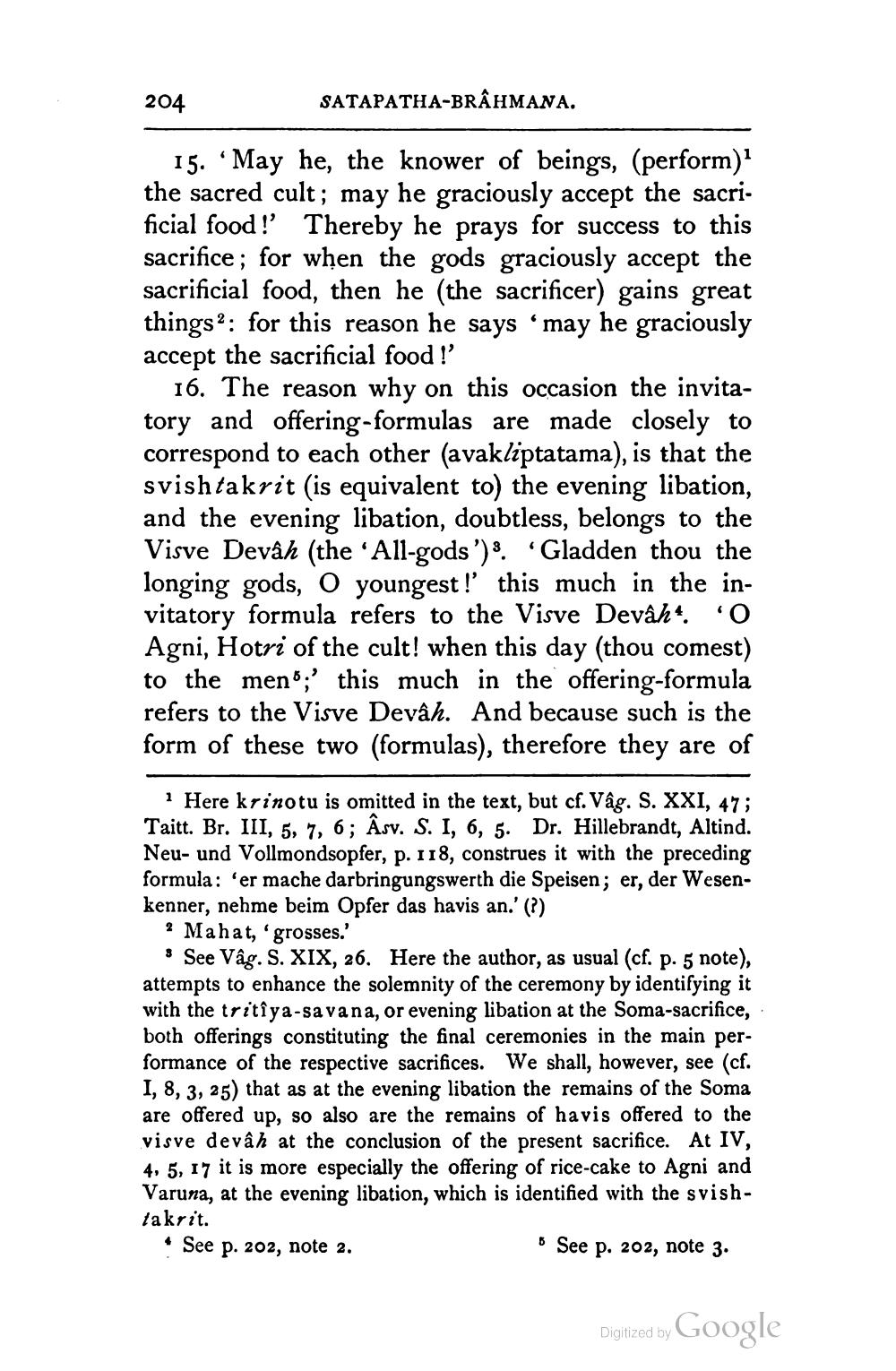________________
204
SATAPATHA-BRAHMANA.
15. May he, the knower of beings, (perform) the sacred cult; may he graciously accept the sacrificial food!' Thereby he prays for success to this sacrifice; for when the gods graciously accept the sacrificial food, then he (the sacrificer) gains great things2: for this reason he says ‘may he graciously accept the sacrificial food !'
16. The reason why on this occasion the invitatory and offering-formulas are made closely to correspond to each other (avakliptatama), is that the svishtakrit (is equivalent to the evening libation, and the evening libation, doubtless, belongs to the Visve Devâh (the 'All-gods') "Gladden thou the longing gods, O youngest ! this much in the invitatory formula refers to the Visve Devâh". "O Agni, Hotri of the cult! when this day (thou comest) to the meno;' this much in the offering-formula refers to the Visve Devâh. And because such is the form of these two (formulas), therefore they are of
Here krinotu is omitted in the text, but cf. Vâg. S. XXI, 47; Taitt. Br. III, 5, 7, 6; Âsv. S. I, 6, 5. Dr. Hillebrandt, Altind. Neu- und Vollmondsopfer, p. 118, construes it with the preceding formula: 'er mache darbringungswerth die Speisen; er, der Wesenkenner, nehme beim Opfer das havis an.' (?)
? Mahat, grosses.'
* See Vâg. S. XIX, 26. Here the author, as usual (cf. p. 5 note), attempts to enhance the solemnity of the ceremony by identifying it with the tritîya-savana, or evening libation at the Soma-sacrifice, both offerings constituting the final ceremonies in the main performance of the respective sacrifices. We shall, however, see (cf. I, 8, 3, 25) that as at the evening libation the remains of the Soma are offered up, so also are the remains of havis offered to the visve devâh at the conclusion of the present sacrifice. At IV, 4, 5, 17 it is more especially the offering of rice-cake to Agni and Varuna, at the evening libation, which is identified with the svishlakrit. • See p. 202, note 2.
• See p. 202, note 3.
Digitized by Google




